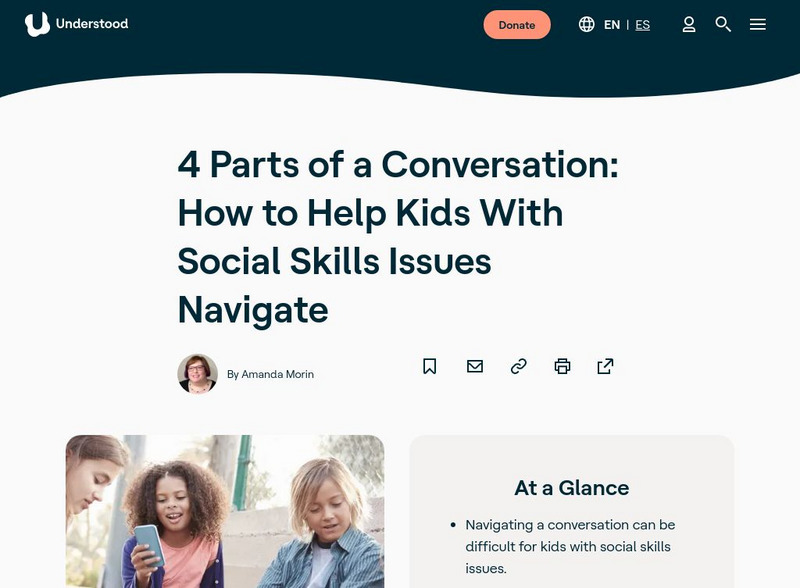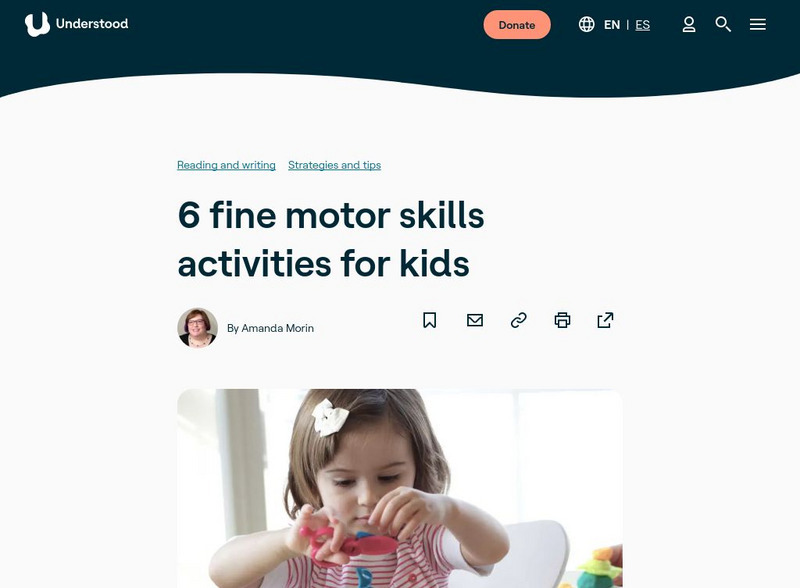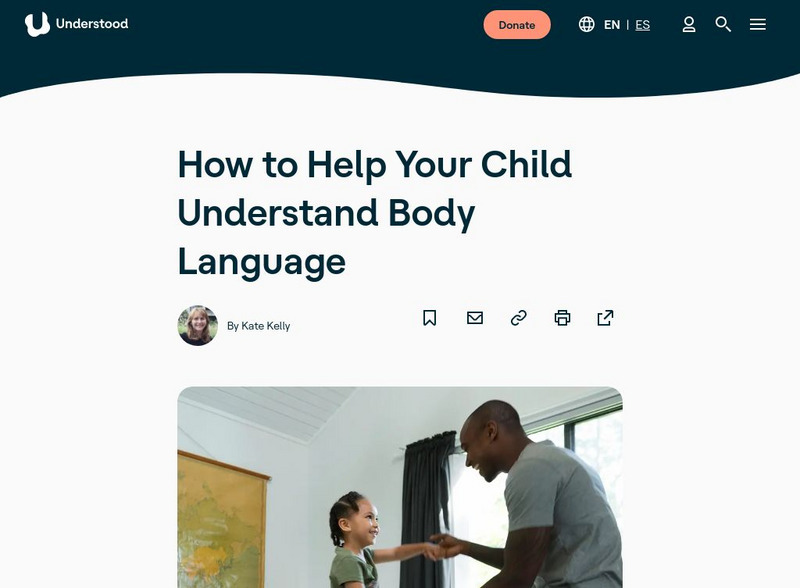Understood For All
Understood: 4 Parts of a Conversation:how to Help Kids With Social Skills Issues
Navigating a conversation can be difficult for kids with social skills issues. Here's a look at the four parts of a conversation, the skills involved, and how to help your child navigate each one.
Understood For All
Understood.org: Strengths Chain: Hands on Activity
To help kids thrive, recognizing their strengths is just as important as working on their challenges. Here's a cool - and crafty - way to identify kids' strengths and connect them in a paper chain, or a "strength chain".
Understood For All
Understood.org: How to Teach Your Grade Schooler Organization Skills
Many kids struggle with basic organization and time management. You may need to work with your grade-schooler on these skills. Here are seven ways to teach your child organization.
Understood For All
Understood: What Is Dyspraxia?
A definition of dyspraxia, including an outline of symptoms, and how dyspraxia affects individuals of different age groups.
Understood For All
Understood: 8 Working Memory Boosters
Kids use working memory all the time to learn. You can help your child improve memory by building simple strategies into everyday life. This article gives 8 memory boosting ideas to incorporate at home or in the classroom.
Understood For All
Understood.org: 5 Steps for Recognizing Strengths in Kids
Knowing your child's strengths can help you build their self-awareness and self-esteem. You can also use those strengths to work on challenging areas in ways that aren't as frustrating. Following these steps can help you recognize your...
Understood For All
Understood.org: How to Teach Your Child About Personal Safety
When it comes to personal safety, kids who learn and think differently may be more vulnerable than other kids. So how can you teach your child about safe and unsafe people? Start with these tips in this article.
Understood For All
Understood.org: 6 Fine Motor Activities for Kids
Kids develop fine motor skills at different rates. If your child's fine motor skills need a little extra help, try these fun activities.
Understood For All
Understood.org: Trouble With Self Regulation: What You Need to Know
Self-regulation skills develop gradually, and there are ways to help your child improve. This article discusses working on self-awareness, impulse control, and goal-setting to help your child learn to self-regulate.
Understood For All
Understood.org: The Bullying Problem: What You Need to Know
When you were in school, did you ever see kids pick on other kids? Today, more than 70 percent of students say they've seen bullying at school. Kids who are bullied can feel a lifetime of hurt and self-doubt. It's a big problem, but you...
Understood For All
Understood: How to Help Your Child Understand Body Language
This article provides tips on how teach children to pick up on social cues.
Understood For All
Understood.org: Skills Kids Need Going Into First Grade
There are fun ways to practice language and math skills to help your child get ready for first grade. Here is a list of skills kids need to develop for first grade in reading, writing, and math.












